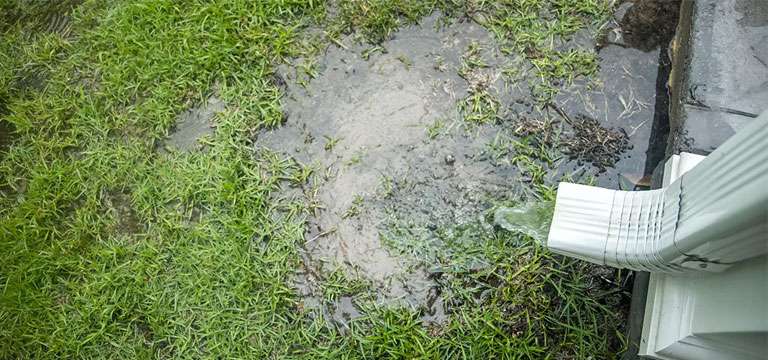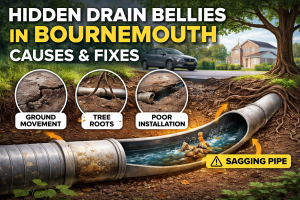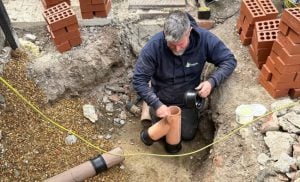Living by the coast offers a relaxed lifestyle and ocean views — but it also comes with unique drainage challenges. Coastal drainage in Bournemouth faces intense rainfall, shifting soil, and saltwater exposure that inland systems never experience. As a result, without proper maintenance, these factors can quickly lead to blocked drains, flooding, and long-term pipe damage.
At Bournemouth Drains24, we help homeowners and local businesses stay ahead of coastal weather patterns with practical, regulation-compliant drainage solutions. Therefore, let’s explore how to protect your home before the next storm hits.
🌧️ Understanding Bournemouth’s Coastal Drainage Challenges
Bournemouth’s coastal climate brings frequent heavy rain, high groundwater, and salt-laden air — a combination that accelerates corrosion and silt build-up in drainage pipes.
Furthermore, properties near seafront areas such as Boscombe, Southbourne, and West Cliff are particularly prone to flooding when gullies can’t cope with sudden downpours.
In addition, the UK’s Sustainable Drainage Systems (SuDS) regulations require properties to manage runoff responsibly. Installing effective soakaway systems, maintaining gullies, and booking periodic CCTV drain surveys are essential to prevent local flooding.
💡 Tip: Bournemouth sits on a mix of chalk and clay soils — meaning water drains slowly and surface pooling is common after storms.
🧰 How to Prevent Coastal Drain Damage
Effective drain maintenance starts with routine cleaning, inspections, and professional drain unblocking.
To begin with, our team recommends:
- Scheduling CCTV drain surveys before winter to catch early warning signs.
- Removing roots, debris, and sand with high-pressure jetting.
- Using CIPP drain lining to strengthen older clay or pitch fibre pipes without excavation.
- Installing non-return valves to prevent seawater backflow during tidal surges.
As a result, these actions dramatically reduce the likelihood of coastal flooding or structural drain collapse.
For emergency overflows or blockages, our 24/7 drain unblocking team can respond fast, minimising water damage and disruption.
🌿 Sustainable Drainage and Flood Prevention
Modern Bournemouth developments increasingly rely on sustainable soakaway installations to disperse rainwater naturally into the ground. Consequently, these systems protect against stormwater flooding while reducing pressure on the public sewer network.
Moreover, environmentally friendly options such as permeable paving, green drainage channels, and rain gardens can further reduce runoff and improve long-term resilience — aligning with Dorset’s regional water management strategy.
🧩 Expert Insight from Bournemouth Drains24
“We see a big increase in coastal drain blockages every autumn. Sand, sea salt, and debris combine with heavy rain to create perfect storm conditions,” says a Bournemouth Drains24 engineer.
“Pre-season CCTV inspections and jetting are the best defence against expensive emergency callouts.”
In conclusion, prevention is far cheaper — and far less stressful — than emergency repair.
🏠 Protect Your Property Before the Next Storm
Don’t wait until flooding starts. Instead, take proactive steps now. Bournemouth Drains24 provides expert drain unblocking, repairs, and CCTV drain surveys throughout Bournemouth, Poole, and Christchurch.
📞 Call Drains24 for expert help with coastal drainage Bournemouth.
Available 24/7 for all emergency and maintenance needs — visit our Emergency Services page to request assistance.
💬 FAQs
Q1: What causes coastal drains in Bournemouth to block so often?
Sand, silt, and sea salt combine with heavy rain to create internal pipe build-up. Regular drain jetting prevents this.
Q2: How often should I service my coastal drainage system?
Schedule CCTV surveys every 12–18 months, and more frequently if your home is near the seafront.
Q3: Are soakaway systems suitable for coastal homes?
Yes — they safely disperse stormwater into the ground, reducing flood risk for Bournemouth properties.
Q4: What is CIPP drain lining, and how does it help coastal homes?
CIPP (Cured-in-Place Pipe) lining repairs cracks and corrosion without digging — ideal for properties with paved or landscaped gardens.
Q5: Can heavy rain damage my drains if they’re newly installed?
It can, if surface water isn’t directed correctly. Ensure new systems include non-return valves and soakaway capacity checks.




